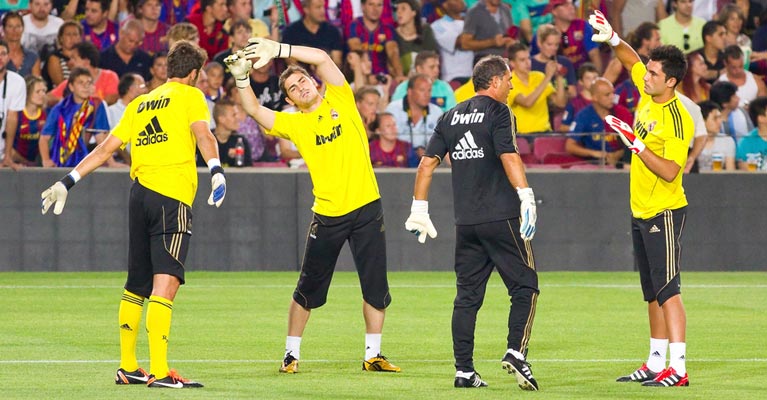Watching a goalkeeper let in a goal that was easily saveable is a painful moment for the neutral (and especially painful for his team’s supporters.)
Last week I watched aghast as a goalkeeper I know let a weak shot slip through his grasp allowing the ball to hit the back of the net. The Premiership reserve team game had been goalless until that point and now the goalkeeper had the less than pleasurable experience of having to apologise to his team mates and the challenge of maintaining his confidence against the backdrop of an embarrassing error.
As it happens he did an admirable job of “moving on” and played nicely for the rest of the football match (it finished one all).
I questioned him afterwards about his “nightmare” and what he said merely hardened my belief as to how much of an affect football psychology can have on a match outcome.
He told me that as he was about to catch the ball he started to think about throwing the ball out to the winger. Yes that’s right, as he was in the process of stretching his arms out his mind had raced ahead onto starting the next attack. This momentary lapse of attention caused him to misjudge both the flight of the football and miscalculate the speed it was travelling at. Result: it flew straight through his grasp into the goal.
Of course he was trying to do what all great goalkeepers do: think and act quickly, catch the opposition off guard and start a penetrating attack. However, this time he got ahead of himself. This time his speed of thought betrayed him.
I have a passion for applying the latest evidence from neuroscience in my work with footballers and the exploits of this goalkeeper reminded me of this brain fact:
The brain works in milliseconds.
Our feelings, thoughts and focus can switch in a matter of milliseconds at any time and this has enormous repercussions for a goalkeeper (and all footballers for that matter).
A footballer must keep his mind in the present moment. When it wanders, whether thinking about a past mistake or focused on what action to take ten seconds into the future he cannot function as well as if his mind is immersed in the moment. His reactions and responses will be poor. His technique may fail him. His decision making will slow and the awareness he has of the movements of his team mates and the opposition will lessen.
A footballer must decide to stay in the present moment.
This is an enormous challenge because the mind likes to wander. The pull of past mistakes and the yen to predict the future are obstacles as dangerous to his performance as the opposition. Both will of course slip into his conscious awareness at times, but his mind can be emptied of these irrelevant thoughts. How? By reminding himself of his tasks, his role and responsibilities and by making sure his eyes focus on relevant cues and objects such as the football, the opposition or his team mates. The challenge for the footballer is that quite often it needs to be on all three at the same time. An unenviable challenge, but one, when executed correctly, looks different class.
Image Credit: Natursports / Shutterstock.com




